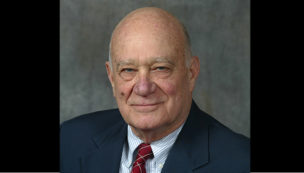Acclaimed historian Doris Kearns Goodwin, who graduated from a Long Island High School, argues that empathy and a capacity for growth have distinguished our nation’s best leaders.
The topic of leadership has attracted increasing attention from scholars and commentators since November 2016 – no surprise in light of the unusual conduct of the current occupant of the White House.
Ivo Daalder and James Lindsay are coauthors of “The Empty Throne: America’s Abdication of Global Leadership.” In a recent article, “Trump’s Screwing Up His own Foreign Policy,” they examine a wide range of Trump’s actions, concluding: “Rather than solving problems, he is creating new and tougher challenges.”
They fear that “the long-term consequences” of his impetuous and ill-informed actions “will be a more dangerous world for the United States – one it will increasingly have to face with fewer friends and allies on its side.”
Many analysts ask whether this president is attentive enough to reliable data, whether he has adequate historical perspectives to advance as a leader in light of new and shifting circumstances. So far, this President holds positions rigidly, often without consultation with American or international advisers.
One of our leading presidential historians, in a talk at Great Neck’s Temple Emanuel, spoke about his startling visit to Donald Trump at Mar-a-Lago, Fla. Not only was he stunned to learn that the president had done no reading of history, but that he had complete confidence that he alone knew what was best for the nation and the world (a view that he expressed repeatedly during the 2016 campaign).
This chief executive shows little curiosity about how to make politics and policies work effectively here and abroad. Given his daily personal rants and conduct, can we expect that he can show empathy for others?
The “First Lady” of the United States has made “anti-bullying” her signature issue, notwithstanding that her husband is described as the nation’s “Bully in Chief.”
The president is certainly a master of branding; he labels others in derogatory terms and he reinforces the negatives through frequent repetition.
If you want to see examples of Trump’s many excesses, check the last 10 minutes of HBO’s John Oliver (for 11/18).
Psychologists state that the key for empathy is “to understand the other person’s experience as if it were being experienced by the self.”
Goodwin cites Lincoln as an example of leadership empathy and growth, with the latter flowing from the former. Cognitive empathy, “sometimes called ‘perspective taking,’ refers to our ability to understand other people’s emotions.”
For the leaders Goodwin and others highlight, empathy is “a vital first step toward compassionate action.” Not only in his Gettysburg Address but throughout his life Lincoln emphasized building bridges to others, not erecting walls against them.
His willingness to meet with a range of people, to listen attentively and responsively were keys to expanded his compassion for those in distress, and for gathering data that became the basis for new actions (his growth in leadership options moved toward the arcs of justice and humanity).
Perhaps it is ironic that one of our greatest leaders whose growth reflected his empathy was never elected to any public office. Can we expect public officials to exhibit qualities that distinguished Martin Luther King Jr.?
Dr. King began with civil rights protests, but his short life became a journey of human rights, a quest for a “beloved community” where nonviolence was not merely a political tactic but a way of life.
Now, when many observers say we are in a state of social and political “anxiety,” it is worth recalling that Dr. King’s goal was always to tap the goodness within every person. That meant not demonizing others who opposed you or harmed you, but seeking ways to raise their consciousness to moral and civil purposes to which they subscribed (however remotely, and even if only in principle, rather than action).
Like Rev. William Barber, leader of Moral Mondays in North Carolina, a true spiritual heir of Dr. King, the goals are 1. to set forth reliable data so folks have a chance to attend to it, 2. to engage others in civil discourse to consider each other’s feelings and possible ways forward, 3. to conduct challenges in ways that show one’s own moral commitments without assailing the humanity of others (recognizing that all of us are shaped by our socialization; we may just need more humane socializations, with more supporters).
Long Islander Harry Chapin frequently emphasized: “To know is to care; to care is to act, and to act is to have a chance to make a difference.”
Dr. King’s deep concern about understanding feelings of others (especially opponents) was the key to his continuing growth as a leader. When he spoke at Hofstra in 1965, he emphasized that people everywhere are affected by the “triple evils of racism, poverty, and war.”
Fully to appreciate dimensions of Martin Luther King Jr.’s empathy and leadership growth, I recommend two exceptional books: 1) Long island author James Colaiaco, “Martin Luther King, Jr. Apostle of Militant Nonviolence,” (especially chapters 5 and 10), and James Cone, “Martin & Malcolm & America: A Dream or a Nightmare.”



